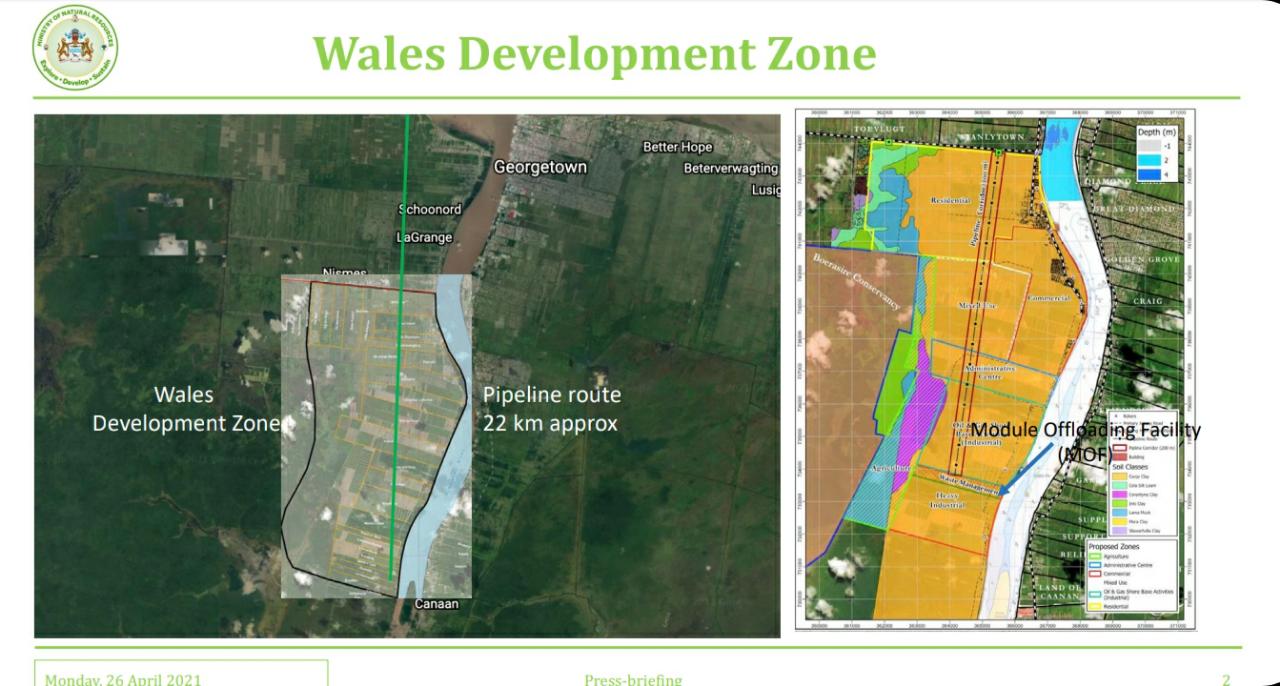The government on Monday defeated a series of amendments put forward by Opposition Parliamentarian David Patterson to pass its own amended Petroleum Bill, boasting that it will support its efforts to provide reliable energy and transform production in several sectors.
The government’s amendments were made to Section 52 of the Petroleum (Exploration and Production) Act.
Minister of Natural Resources Vickram Bharrat, in whose name the Bill was piloted, told the National Assembly that the amendments to the Petroleum Act will facilitate the government’s efforts to monitor oil production activities offshore and advance the gas-to-energy project in Region Three.
Minister Bharrat highlighted that the amendments will allow for two key activities in the development of Guyana’s oil and gas infrastructure: the laying of ExxonMobil’s fibre optic cable and the pipelines for the gas-to-energy project at the developing Wales Development Authority (WDA), on the West Bank of Demerara.

He explained, firstly, that the 1986 Petroleum Act does not make provisions for fibre optic cables laying onshore.
And, as part of safety guidelines, laying such pipelines must be done with adequate spacing from places where people occupy.
“…what they (ExxonMobil) will do is run that fibre-optic cable on state land…which is, of course, no harm to residents living close by,” he explained.
ExxonMobil’s Guyana subsidiary, Esso Exploration and Production Guyana Limited (EEPGL) has intentions to bring a state-of-the-art fibre optic cable system to shore. According to Minister Bharrat, this cable will allow for the real-time monitoring of production activities offshore Guyana.
“I’m sure this will add to the whole transparency and accountability of the sector,” he said, explaining that the government will have access to live streaming of the work offshore.
Additionally, this amendment also makes provisions for the government to acquire privately-owned lands for use in the laying of pipelines for the gas-to-energy project, even though the Minister said that the government will try to use state lands as far as practically possible.
The pipelines coming onshore for this project will be landed at Best/Crane area on the West Coast of Demerara. Subsequently, those pipelines have to be taken to Wales on the West Bank of Demerara.
Running those pipelines, Bharrat explained, could possibly be done along the backlands of Parfaite Harmonie where there are primarily state lands and some private farms that the government may have to acquire.
With the amendment possibly giving government oversight for the acquisition of the private lands, the Minister contended that Guyanese would be able to rest assured that they will be adequately compensated by the government.
This, he said, is a better alternative than letting the licensee (which would be ExxonMobil, in this case) manage this process of potential acquisitions.
The amendment inserts a proviso to subsection (1)(b)(i) and (ii) to exempt State land, Government land, land wholly owned by State entities or in which the controlling interest is vested in the State and any land identified by law or on a plan for reserves from the restriction of section 52(1) (b).
Section 52 of the act details the restriction on rights of licensee and surface rights.
Subsections (1) (b) (i) and (ii), which are being proposed for amendment, pertain to any land which is the site of, or which is within two hundred meters (or such greater distance as may be prescribed) of, any inhabited, occupied or temporarily unoccupied house or building and any land within fifty metres (or such greater distance as may be prescribed) or any land which has been cleared or ploughed or otherwise bona fide prepared for the growing of, or upon which there are growing, agricultural crops.
Additionally, the bill seeks to further amend this section by inserting two new subsections.
Subsection (2A) will provide that the Minister may obtain written consent from any landowner or lawful occupier of private land. As per the existing Act, only a licensee may obtain written consent from the lawful occupier of private land.
The other proposed addition, Subsection (2B), provides that the licensee may land, install or operate any pipelines or submarine, fibre optic or terrestrial cables or similar infrastructure.
The licensee may use land exempted under the proposed stipulation provided under subsection (1)(b) (i) and (ii) to engage in these activities.
Importantly, these infrastructural activities may only be done on lands belonging to or controlled by the State, or any land identified by law or on a plan drawn and approved in accordance with any law for reserves.
State land, Government land, land wholly owned by State entities or in which the controlling interest is vested in the State and any land identified by law or on a plan drawn and approved in accordance with any law for reserves.
Importantly, the bill states that this amendment is necessary since the Petroleum Act is premised on onshore development with all of its accompanying heavy infrastructural works.






